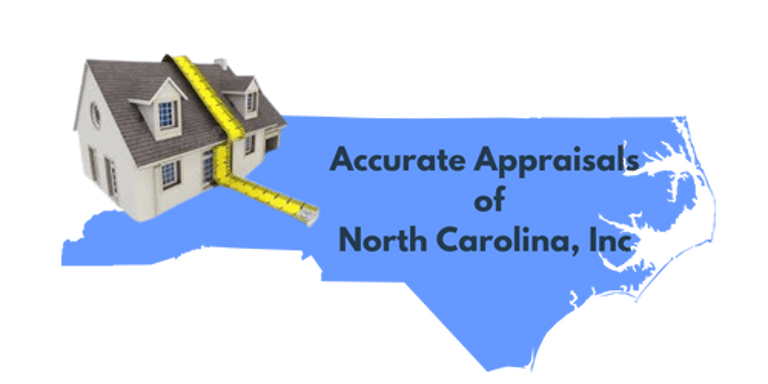
Frequently asked questions
What is an appraisal?
An appraisal is a professional opinion of market value provided by a licensed or certified real estate appraiser. It is supported by recent sales, market data, and an analysis of the subject property.
Why would someone need a home appraisal?
Appraisals are used for a variety of reasons, including:
Home purchases and refinancing
Pre-listing a home for sale
Estate or divorce settlement
Property tax appeals
Cash purchases
Removing PMI (Private Mortgage Insurance)
What does an appraiser do?
An appraiser will:
Visit the property and conduct a physical inspection
Measure and sketch the home
Take interior and exterior photos
Analyze market data and comparable sales
Compile a detailed report showing how the final value was determined
What is the difference between an appraisal and a home inspection?
A home inspection identifies physical or mechanical issues with the property (like plumbing, HVAC, or roof problems).
An appraisal determines the current market value of the home based on size, condition, location, and comparable sales.
What is GLA (Gross Living Area)?
Gross Living Area refers to the finished, heated, above-grade living space in a home. It typically excludes garages, porches, basements (unless finished and above grade), and detached structures.
What does USPAP mean?
USPAP stands for the Uniform Standards of Professional Appraisal Practice. These are the ethical and performance standards appraisers must follow to ensure integrity, objectivity, and professionalism in their work..
What areas do you serve?
We provide residential appraisal services in:v New Hanover County, Brunswick County, Pender County and Onslow County
Based in Wilmington, North Carolina
How do I order an appraisal?
You can request an appraisal by:
📧 Emailing: info@accurateappraisalsofnc.com
📍 Contacting us through the website or by phone
We’ll follow up to discuss your needs, property details, and provide a quote and timeline.
Why Get an Appraisal?
Understanding the Value of a Professional Appraisal
A home appraisal provides an independent, expert opinion of a property’s market value. Whether you’re buying, selling, refinancing, or handling legal matters, an appraisal is a key tool to make informed decisions.


Reasons to Get an Appraisal
Buying a Home: Ensure you’re paying a fair price based on current market data.
Selling Your Property: Price your home competitively to attract buyers and avoid surprises.
Refinancing: Confirm your home’s value to qualify for better loan terms.
Estate Planning: Determine the value of property for inheritance or tax purposes.
Divorce Settlements: Provide an objective valuation to support fair division of assets.
Property Tax Appeals: Challenge an assessed value that seems too high.
Investment Decisions: Understand the potential return on rental or flip properties.
Benefits of a Professional Appraisal
Unbiased and Independent: Unlike online estimates or agent opinions, appraisals are objective.
Comprehensive Reporting: Includes detailed property inspection, market analysis, and value explanation.
Credibility: Lenders, attorneys, and courts rely on professional appraisals.
Peace of Mind: Helps you make confident financial decisions.
The Three Approaches to Value
How Appraisers Determine Property Value
Appraisers use three primary methods to estimate the market value of a property. Each approach provides a unique perspective and helps ensure a well-rounded valuation.
Sales Comparison Approach
Compares the subject property to recently sold similar homes (comparable sales or “comps”)
Adjusts for differences in size, condition, location, and features
Most commonly used for residential appraisals
Reflects current market trends and buyer preferences
Estimates the cost to replace the property with a similar one, minus depreciation
Considers land value plus the current cost of construction
Useful for new or unique properties without many comparable sales
Helps lenders and insurers understand replacement cost
Based on the income a property generates (typically used for rental or investment properties)
Calculates value using potential rental income and expenses
Common for investment and commercial properties
Assists investors in evaluating property profitability
Cost Approach
Income Approach
Why Use Multiple Approaches?
Combining these approaches provides a more accurate and reliable appraisal by considering different market factors and property characteristics.
Appraiser Jargon Explained
Appraisal
A professional, unbiased estimate of a property’s market value.
GLA (Gross Living Area)
The total finished, heated, above-ground living space of a home. Does not include garages, porches, or unfinished basements.
USPAP
Uniform Standards of Professional Appraisal Practice — the ethical and performance standards appraisers follow nationwide.
Comparable Sales (Comps)
Recently sold properties similar to the subject property, used to help determine market value.
Market Value
The most probable price a property should bring in a competitive and open market.
Adjustment
A dollar amount added or subtracted to comparable sales prices to account for differences from the subject property.
FHA Appraisal
An appraisal performed according to Federal Housing Administration guidelines, which includes additional safety and condition checks.
Tax Assessment
A value assigned by the county tax assessor used to calculate property taxes. This is often different from market value.
PMI (Private Mortgage Insurance)
Insurance that protects lenders if a borrower defaults. PMI is usually required if the down payment is less than 20%.
Common Terms You’ll Hear from Your Appraiser
Understanding appraisal terminology can make the process clearer and less confusing. Here are some key terms explained in plain language:
